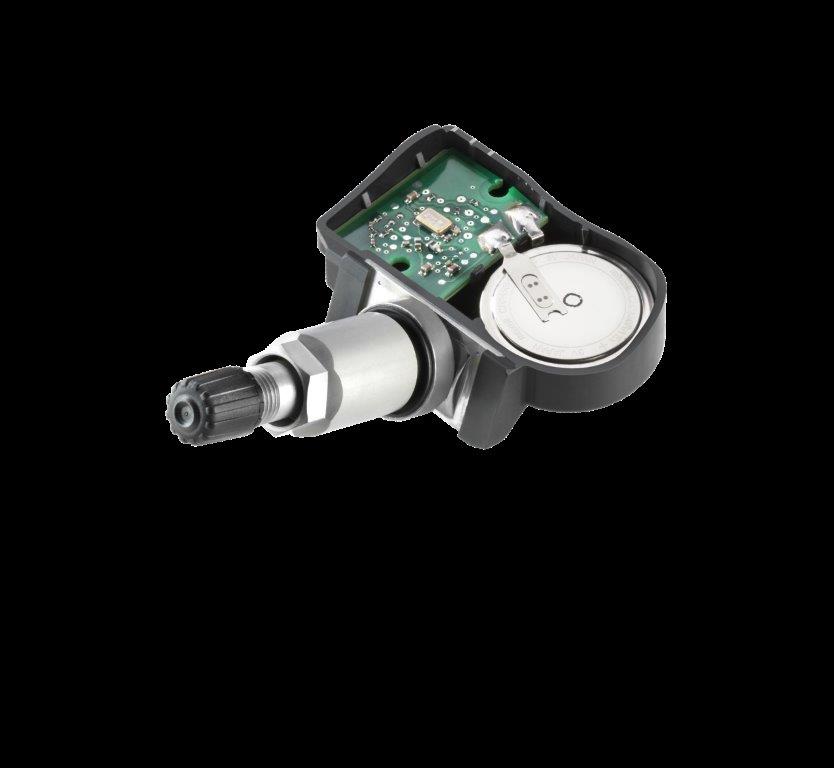Continental Drives Localization Forward: Launches Tire Pressure Monitoring System Production in India

Bengaluru, India – Continental has launched the production of Tire Pressure Monitoring System (TPMS) for passenger cars at its Bangalore plant, dedicated to safe mobility and backed by Vision Zero. With the localization of TPMS, the company is steadfast in its commitment to supporting the local OEMs in India. In the next three years, the company aims to rapidly scale up its TPMS production capacity. At present, it is the first Tier 1 supplier to manufacture TPMS in India, providing safer, more sustainable, and inclusive mobility. The current production will cater to the local market, and in the next two years, the scope will be expanded to include export markets as well.
Ramnath Sivaraman, Head, Motion Technologies and Services, Continental Automotive India, remarked, “At Continental, we are committed to India and its growing market needs. At present, safe mobility is a high-interest topic among consumers who are consistent in their expectations for the latest safety technologies in vehicles. The launch of TPMS will complement the overall vision for safe mobility in India. In addition, TPMS will also aid the cause of clean mobility by indicating to the driver how to maintain optimal tire pressure. With our in the market, for the market focus, we are in a good position to support local OEMs with respect to growing demands for advanced technologies at an affordable cost.”
 TPMS measures the pressure, temperature, and detects the motion of the tire from the inside of it, and transmits the information through radio frequency and the vehicle communication network to a display in the instrument cluster. Providing accurate and timely information to the driver about the status of the tires, for example, the tire pressure and temperature for each wheel position. This information is crucial for the driver to maintain optimal air pressure to maintain vehicle safety and efficiency.
TPMS measures the pressure, temperature, and detects the motion of the tire from the inside of it, and transmits the information through radio frequency and the vehicle communication network to a display in the instrument cluster. Providing accurate and timely information to the driver about the status of the tires, for example, the tire pressure and temperature for each wheel position. This information is crucial for the driver to maintain optimal air pressure to maintain vehicle safety and efficiency.
Phanindra Karody, Head, Bangalore Plant, Continental Automotive India, added, “Continental has a determined focus for localization. The newly launched TPMS line features state-of-the-art smart manufacturing processes. This includes a fully automated assembly line with collaborative robots (Cobots) and a system that enables digital traceability. In our localization efforts, we will continue to expand the production of the TPMS line based on market demand. In the next three years, we aim to rapidly scale up the production capacity and advance our export scope. Our smart manufacturing system at the plant will help us achieve our expansion goals in line with yearly targets.”
Data, software, and AI are transforming the future of mobility. With vehicles entering the era of being software-driven, they become computers on wheels. To enhance TPMS usability and benefits for the end user, Continental, in its unique position, offers innovative add-on TPMS features, such as advanced ‘problem tire’ localization functions and ultra convenient Smartphone Apps such as Filling Assistant and Tire Data.
With a reliable and absolute measured tire pressure and temperature, TPMS offers cost savings due to optimized tire usage due to driving at recommended tire pressure for optimal rolling resistance, enhanced driving safety, reduced fuel consumption, less CO₂ emission, and an extended battery range for electric vehicles. Additionally, TPMS boasts of increased mobility safety by early leakage detection, and it can be implemented as a stand-alone or integrated system solution. TPMS has a lifetime of up to 10 years, its operating temperature is -40 to 120°C, and it weighs 37 g.
Industry 4.0 Enabling Smart Localization
When it comes to safe mobility, Continental has been consistent with the technology solutions that are offered to OEMs to meet Government regulations and standards. In the quest of establishing a sustainable manufacturing ecosystem, the company has adopted digitization and automation of various processes. The Bangalore plant is the largest electronics manufacturing plant of Continental in India and is symbolic of a smart factory.
Technologies such as Cobots, Augmented Reality, Artificial Intelligence for face recognition, automated replenishment systems, automated optical inspection, automated guided vehicles, and Big Data applications are implemented on the shop floor, help in operational efficiency, meeting quality standards, staying consistent in precision, and maintaining a high level of transparency. Smart manufacturing processes offer a strategic advantage in swift localization and a faster product-to-market solution.
Image Source: Continental AG




 Facebook
Facebook.png) Twitter
Twitter Linkedin
Linkedin Subscribe
Subscribe